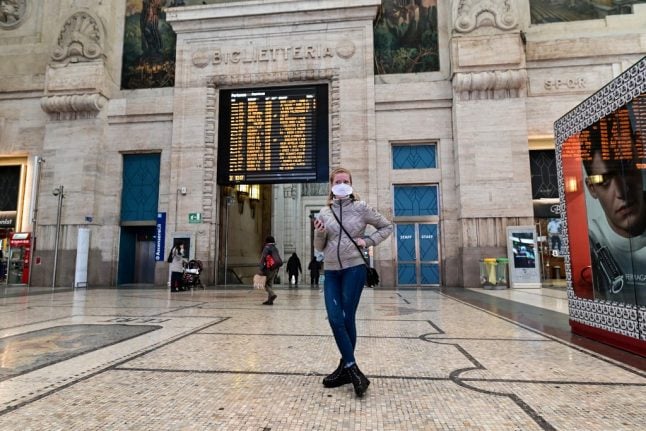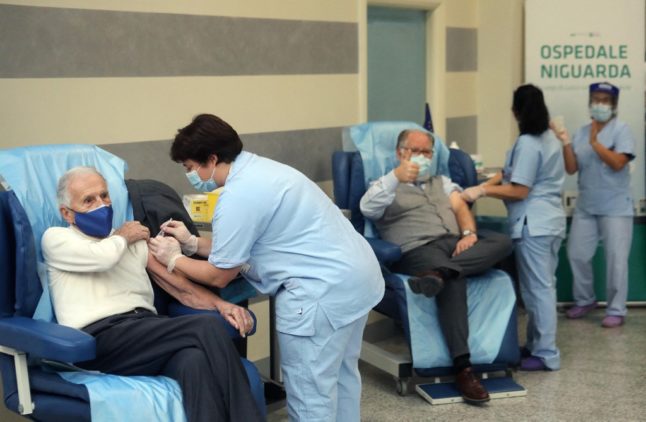This week we've been trying to answer readers' questions about how everyday life in Italy, as well as travel, is affected by the nationwide quarantine measures brought in by the government this week, in place until April 3.
We've answered your most urgent questions about how th affects everyday life here.
Another important question we've had is about whether you can now cancel your train tickets and get a refund.
Here's a full explanation of what you need to do if you're trying to change or cancel a trip.
If you've got tickets booked for a journey on Italy's rail network before April 3, you're likely to want to cancel or change your journey.
Though most trains, and other forms of public transportation, are still running they are on a reduced schedule, and you may of course not be able to travel unless your reason for doing so is urgent and unavoidable.

Photo: AFP
Passengers may be subject to police checks before boarding and will need to complete a form declaring their reasons for travelling. Accepted reasons include urgent, proven work commitments and health reasons, such as a medical appointment.
Here's the new form and everything you need to know about it. As well as for travel, everyone in Italy is now required to carry one of these whenever they leave the house.
Train companies have also stated that their passenger loungers at larger stations have been closed and there will be no refreshments served on board trains.
So can you change your train ticket or get a refund?
The short answer is yes, you should be able to – but there are some restrictions, depending on which train company you're using, where you're going, and when you booked.
If you're travelling with Trenitalia, the national rail operator which runs local services (including intercity, regionale and regionale veloce trains) as well as the high speed Frecciarossa (and Frecciabianca, Frecciargento) services, click here for full information.
Most high-speed Frecciarossa trains have been cancelled from Friday March 13. Some services are still running – check the website for full details here.
Trenitalia has stated that customers who purchased a ticket for Frecce, Intercity, Intercity Notte and Regionale before 23 February 2020 can be refunded in full, regardless of ticket type. The tickets will be refunding via an electronic voucher “equal to the value of the ticket purchased, usable within one year from the date of issue.”
For regional transport tickets, the refund will need to be made in cash.
To manage your booking, you'll need to log in to your customer account on the Trenitalia website or call the assistance number on 892020
For anyone still travelling on the remaining services, the booking system has been changed to ensure passengers sit at the recommended distance from each other (at least one metre apart), and the company said hand sanitiser dispensers were being placed on board
READ ALSO:
If you're travelling with Italo, Italy's other high-speed rail service, you should also be able to change your ticket but the rules (here in Italian) are slightly different.
Customers need to request a refund via phone, email, or the Italo website, which the company states will be processed within 30 days.
“Tickets purchased before March 2, 2020 are refundable for travel to and from Lombardy, Veneto and Emilia Romagna, while tickets purchased by March 9, 2020 can be refunded for travel to and from any other area of the national territory.”
“Before the departure time, the customer may request a full refund of the ticket.”
Refunds will be issued in the form of a voucher, it states, “that can be used for new ticket purchases relating to travel within one year of issue.”
To request a refund from Italo, call the contact number 060708 or email [email protected]
If emailing, put your ticket code (and no other words or characters) in the subject line.
“In case of requests for multiple trips, it is necessary to send a separate email for each ticket code”, the rules state.



 Please whitelist us to continue reading.
Please whitelist us to continue reading.
Member comments